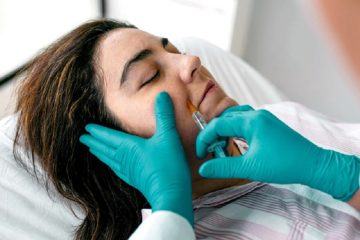Vaccine preventable disease

“Prevention is better than cure”. Sounds familiar? Well, it is indeed true that most diseases in this world can be prevented by many health interventions. One of them is by vaccination. Vaccine helps the body to build protection against diseases by producing antibodies to fight against the respective disease. Diseases that are usually prevented by vaccines are typically the one that is easily spread. Although there is no guarantee that a vaccinated person will not get infected by diseases, at the very least it helps to reduce the severity of the diseases and prevent them from infecting others. This is thanks to vaccines boosting the body’s natural immune response against the disease.
Vaccine preventable diseases (VPDs) are infectious diseases caused by viruses or bacteria that can be prevented with vaccines. According to the Center for Disease Control and Prevention (CDC), 10 of thousands of people get sick with VPDs. Infections caused by these VPDs can cause hospitalisation and even death. Thus, the best way to protect against VPDs is to take vaccines.
The importance of vaccines is more than just to protect a person from the disease. It helps to reduce the number of VPDs and in some cases helps to eliminate these health diseases for good. CDC works to strengthen immunisation systems and vaccination worldwide to reduce VPD related death, disease and disabilities.
In Malaysia, there are preventable diseases listed under the Malaysian National Immunisation Programme (NIP). Malaysian NIP was designed based on the WHO Expanded Programme on Immunisation (EPI). EPI recommends that all countries immunise against 6 childhood diseases but there are 13 major childhood diseases listed as preventable diseases under Malaysian NIP. The diseases preventable under NIP as follows:
- Diphtheria- infectious disease caused by bacteria that live in the mouth and throat of the infected person.
- Haemophilus influenzae type B- serious infection mainly affects children under the age of 5.
- hepatitis B- infection of the liver caused by the Hepatitis B virus.
- human papillomavirus- common sexually transmitted infection (STI) that causes cervical cancer which is the 3rd common cancer in women.
- Japanese encephalitis- JE can cause brain infection, this vaccine is not obligatory in other parts of Malaysia except for Sarawak.
- Measle- highly contagious viral disease.
- Mumps- viral infection commonly causes inflammation of the brain (encephalitis).
- Pertussis- also known as whooping cough, highly contagious, persistent coughing that can lead to breathing difficulties in children.
- Poliomyelitis- infectious and incurable viral disease that attacks the nervous system
- Rubella- also known as German measles that can cause abnormalities in the fetus such as deafness, congenital heart defects and cataracts.
- Tetanus- also known as lockjaw, caused by bacteria toxins that attacks the nervous system
- Tuberculosis- disease commonly infects the lung but also can attack other parts such as the brain, skin, spine and intestine.
Under the NIP, Malaysia has achieved more than 90% vaccination coverage among infants and young children. Based on the high percentage of vaccine coverage, Malaysia is expected to have achieved full immunity to all VPDs. The NIP vaccinations are provided free-of-charge at all government clinics. It is available in private healthcare facilities but parents or caretakers often need to pay for it.
It is important to follow the NIP schedule. This is to ensure that the child receives vaccinations at optimal level and be provided with the safest protection possible. It is not advisable to skip or delay vaccines as this will leave a gap for the disease to affect the vulnerable child. In case the child has missed a vaccine or delayed one, the child needs to get evaluated by doctors and scheduled for a catch-up vaccination.
However, recent data shows that parents or caretaker are the reasons for the incomplete or non-vaccination. This could stem from the issues revolving around the healthcare facility such as shortage of vaccine stocks and personal reasons. Among the personal reasons are time constraints, overlooked clinic/hospital appointments, geographical barriers, refusing vaccines, experience of adverse effects and concern if vaccines are non-halal (permissible under Islamic law).
Vaccine hesitancy is a phenomenon stemming from various factors. It is important for both healthcare professionals and parents or caregivers to be knowledgeable and understand the importance of vaccination. It is vital to tackle vaccine hesitancy before many more people feel reluctant to get vaccines. Just imagine, vaccination programmes against diseases such as polio have made cases of polio almost forgotten. However, due to vaccine hesitancy issues, in December of 2019, polio was detected for the first time in 27 years. A year and a half later, the implementation of a successful polio vaccination campaign has led the government to declare the polio outbreak in the country to be over. Therefore, VPDs can be prevented by complete vaccination as scheduled by the Malaysian NIP. It can be an unfortunate event should vaccine hesitancy occur and cause re-emerging of the disease that has been deemed to be forgotten or eradicated before.
Aslo read – Dengue Prevention















